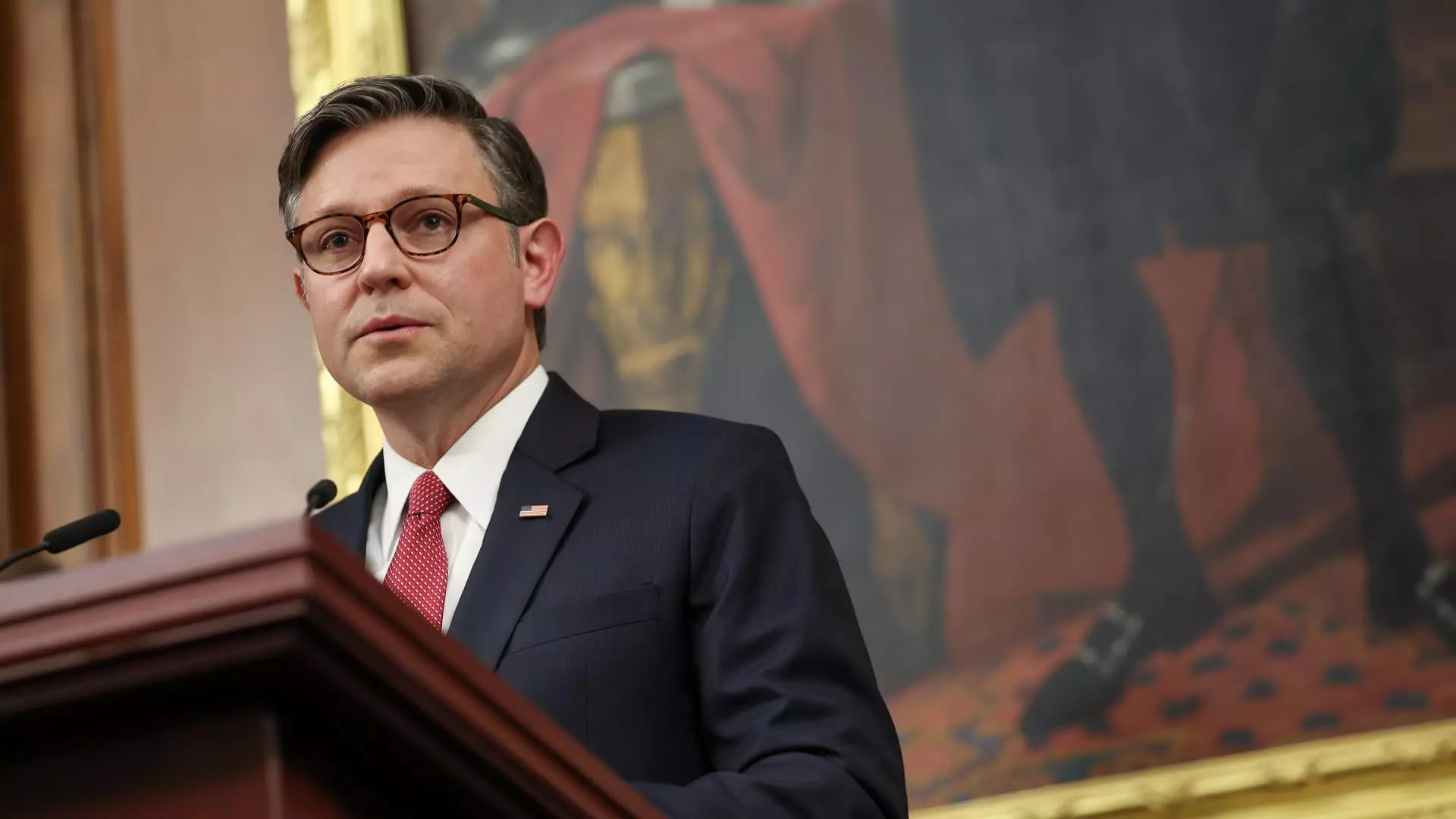In an era where surveillance and military engagement have become synonymous with national security, the debate surrounding the War Powers Act has ignited fierce contention. Recently, House Speaker Mike Johnson’s bold assertion that the War Powers Act is unconstitutional raises urgent questions about the separation of powers and the limits of presidential authority. Johnson’s remarks come in the wake of President Trump’s military maneuvers targeting Iran, casting a spotlight on an ongoing struggle to balance executive power with legislative oversight.
The Historical Context of War Powers
The War Powers Resolution of 1973, born from the tumult of the Vietnam War and the abuses of executive authority during that period, was intended to restrain unlimited military action by the president. This legislation mandates that the president must inform Congress within 48 hours of deploying armed forces and that such military actions must cease within 60 days unless Congress grants authorization. Johnson’s assertion that this law is unconstitutional suggests an alarming disregard for a framework designed to preserve democratic checks and balances.
Yet, as historical precedents show, the invocation of Article II of the Constitution by past presidents to justify military action has been a double-edged sword. While the Constitution indeed designates the president as the commander-in-chief, it also explicitly assigns Congress the power to declare war. The ongoing military engagements in the Middle East, especially the current conflict involving Iran and Israel, underscore a glaring inconsistency: Congress has not formally declared war since World War II. This raises significant concerns about the delegation of such monumental powers to the executive branch, often resulting in unchecked military interventions.
Implications of Johnson’s Stance
Johnson’s perspective highlights a worrying trend towards an expansion of presidential power, particularly in a critical area that affects national and global stability. By claiming that the War Powers Resolution violates constitutional provisions, Johnson is not merely defending a current president’s actions; he is advocating for a much broader erosion of legislative authority in military matters. The uncomfortable truth lies in the fact that many lawmakers, blinded by party loyalty, may prioritize tribal allegiance over constitutional fidelity.
This narrative unfolds further when we consider Johnson’s comments, which downplay the significance of the War Powers Resolution and align with Trump’s positions. With Trump’s recent airstrikes and subsequent disparaging remarks about dissenting Republicans such as Thomas Massie, we see a disturbing intersection of executive authority and partisan politics. Trump’s threats to label Massie a “LOSER” reflect not only personal animosity but a broader strategy to stifle debate within his own party regarding military actions.
The Role of Bipartisan Resistance
Despite the overwhelming dominance of the Republican narrative, there are glimmers of bipartisan efforts to check unilateral military action, as evidenced by the resolution backed by Rep. Massie and Rep. Ro Khanna. Their joint endeavor to ensure that any military hostilities against Iran require congressional authorization exemplifies the concept that both parties can indeed unite around issues of war powers, even in times of intense political division.
However, the fragility of this resistance hangs in the balance, challenged by the administration’s insistence on maintaining military prerogatives without accountability. Should Congress fail to act in a meaningful way, the trajectory toward unchecked military expansion will not only compromise the integrity of the legislative branch but may sow the seeds for future governance crises.
Reflections on Power Dynamics
As we observe the unfolding developments surrounding U.S. military interventions and legislative responses, it becomes clear that the heart of the issue transcends mere procedural disputes. It encapsulates a struggle for the soul of American democracy. It compels citizens and lawmakers alike to reckon with the implications of an increasingly militarized approach to foreign policy, one where the executive may be tempted to bypass essential checks in the quest for swift action.
In times of conflict, it is easy to forget the foundational principles that underpin our democratic society. The stakes are indisputably high when it comes to the balance of power; a failure to rein in the presidency not only invites potential abuse but also undermines the very system of governance designed to protect us from authoritarianism. The battle for accountability must therefore be at the forefront of discourse as we navigate these perilous waters.


Leave a Reply